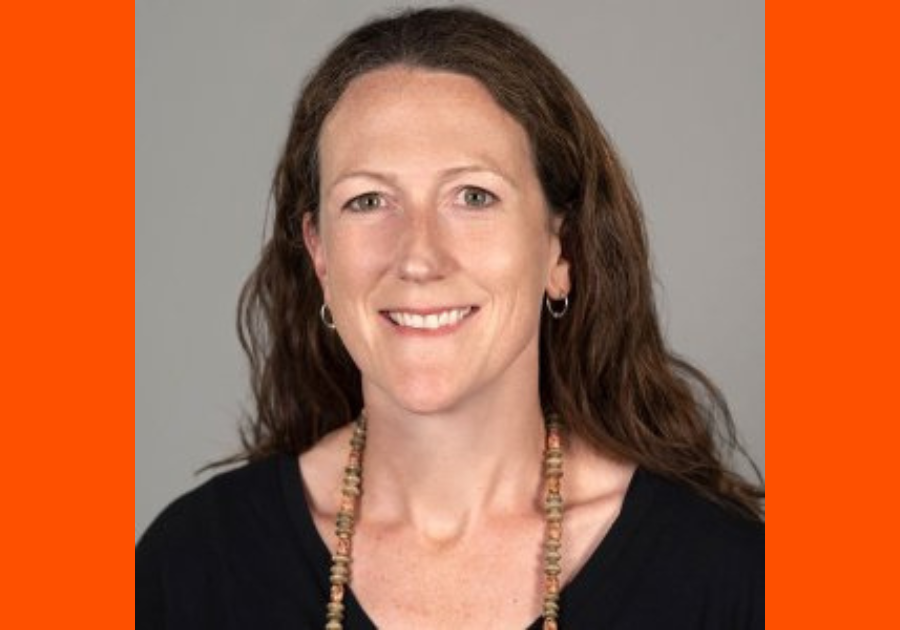In her interview, she tells us about her work on the Y-Check study, her favourite thing about working in Zimbabwe and the best career advice she’s been given.

Where are you from? And what drew you to LSHTM?
I'm from Dublin in Ireland. I did a science degree there and after several years working I came to LSHTM to do a PhD on adolescent sexual and reproductive health in Tanzania.
What prompted you to stay at LSHTM after completing your PhD?
I really enjoyed working there. I like the environment and the family-friendly conditions.
What are you currently working on?
A couple of years ago I was awarded the UKRI Future Leaders Fellowship, a four-year award for research and innovation. The project that I'm currently working on is called Y-Check. We are developing and then implementing and evaluating health and wellbeing check-ups for adolescents in low- and middle-income countries (LMICs). In Zimbabwe, we are doing this work in collaboration with colleagues at THRU ZIM at the Biomedical Research and Training Institute, and I'm currently based in Harare, Zimbabwe.
The project is focused on delivering health and wellbeing check-ups to 10- to 19-year-olds. It involves screening and then treatment or referral. This is a new approach because in most low-income countries, including Zimbabwe, few adolescents have contact with the health system. This is a missed opportunity for prevention, early identification and treatment of health issues, and health promotion.
We only screen for common conditions that have an accurate and acceptable test and locally accessible effective intervention. This includes sexual and reproductive health, mental health, disability, vision and hearing, nutrition, exercise, drugs and alcohol, plus others. It’s a very exciting project.
What does a typical working day look like for you?
Usually, I will go into the office and have meetings with colleagues. Sometimes we go out to visit the schools and communities where we are going to deliver the intervention and meet with potential collaborators. We have been piloting the intervention so sometimes I also visit the team delivering the intervention.
Alongside this, I also write and analyse data and teach and supervise students.
What has been the biggest challenge with the Y-Check project so far?
The main challenge has been the complexity of the project. Often people or projects just focus on one health condition, but we have had to master all these different health conditions. We need to understand the epidemiology, means of measurement, and what the clinical action would be for up to 15 health conditions.
Another one of the challenges of working with adolescents is getting parental consent but we’ve had a good experience so far. Overall, it's been very good just busy!
If you identify a condition, how straightforward is it to arrange treatment or a referral?
We are setting up referral pathways but for some of the conditions the referral pathways for adolescents specifically are not clearly defined because they don't always access those services routinely. This is challenging.
One of the things we will be measuring is whether these adolescents attend that referral appointment and what happens to them afterwards. This is key as Y-Check is an implementation effectiveness study.
If you had to describe your role in three words, what would they be?
Varied, busy, fun.
What is your favourite thing about your job / working in Zimbabwe?
I enjoy working with great people and being able to support them to advance in their careers. It's very rewarding.
Can you tell us the best career advice you've ever been given?
Once somebody advised me to think about what I really wanted to do... what I really enjoyed. So, think about the kind of work you really enjoy and then work out a way to do that kind of work more often than the kind of work you don't enjoy.
It takes a while when you're early in your career to work out what you enjoy doing and then try to manoeuvre your way into a job where it allows you to do that.
What's your proudest career achievement so far?
Finishing my PhD because it took quite a while – I led quite a big project and I had a child in the process before managing to write it up. As anyone who's done a PhD will agree, when you complete it, it feels good.
How does being a MARCH member support your work?
My research is in adolescent health and one of the MARCH themes is adolescent health so it's a good fit and a good way for me to meet and interact with people who are interested in similar topics.
It's also quite a diverse group so it's an opportunity for extended collaboration within and across faculties at LSHTM. MARCH helps to advertise events and papers and disseminates opportunities that are relevant to my work.
If everything goes to plan with your work, what do you hope to have achieved in 10-years' time?
That’s a hard one. There are two things: one is helping to support people in their careers, as people have supported me, and to be able to share those skills with other people, either here in Zimbabwe or elsewhere. But also to improve access to quality health services and information for adolescents because there's a big need and unfortunately, some of these issues have been neglected. So, it would be nice to be able to make some progress in that area.
When you're not working, what do you get up to?
I like hanging out with my family and my friends. I also play volleyball.
Our postgraduate taught courses provide health practitioners, clinicians, policy-makers, scientists and recent graduates with a world-class qualification in public and global health.
If you are coming to LSHTM to study a distance learning programme (PG Cert, PG Dip, MSc or individual modules) starting in 2024, you may be eligible for a 5% discount on your tuition fees.
These fee reduction schemes are available for a limited time only.
